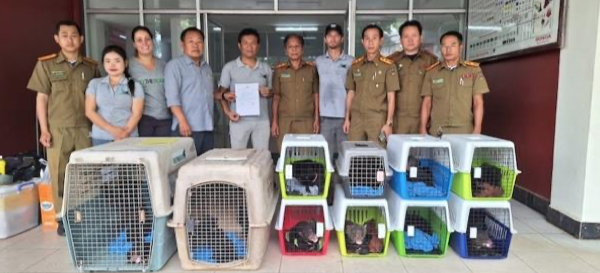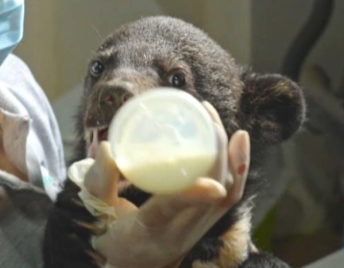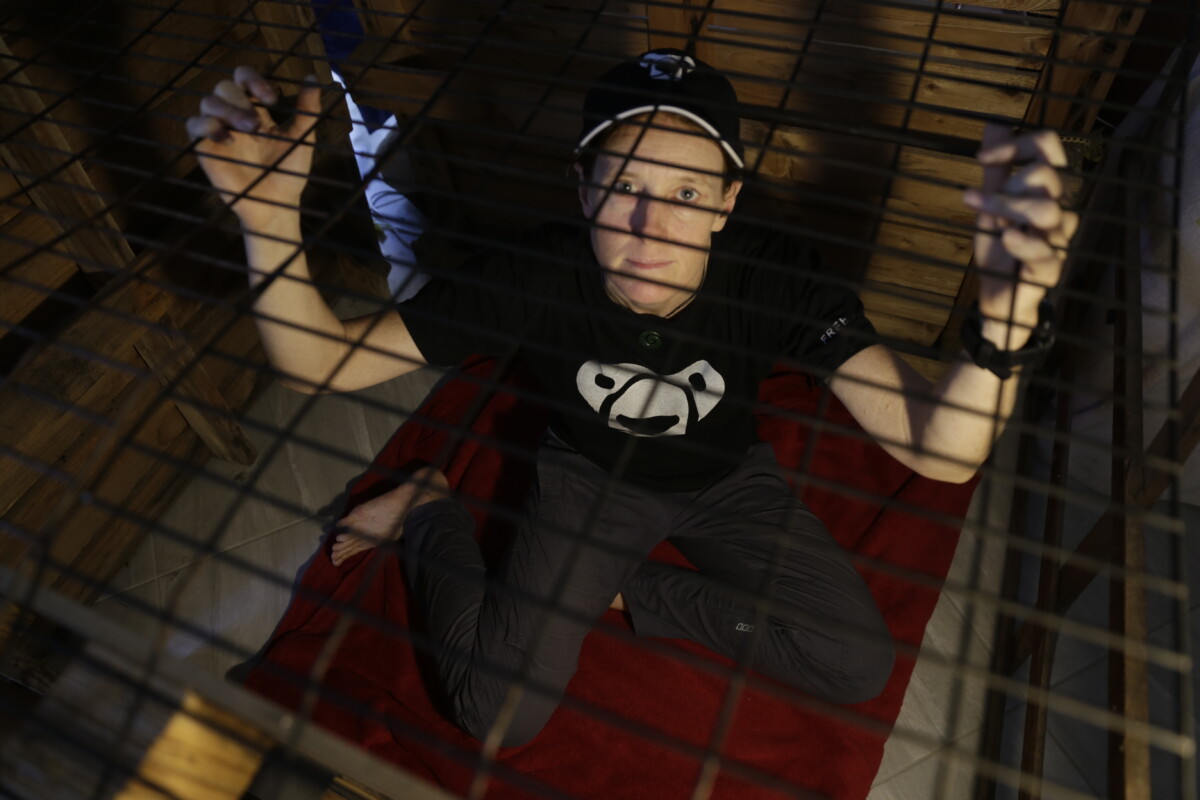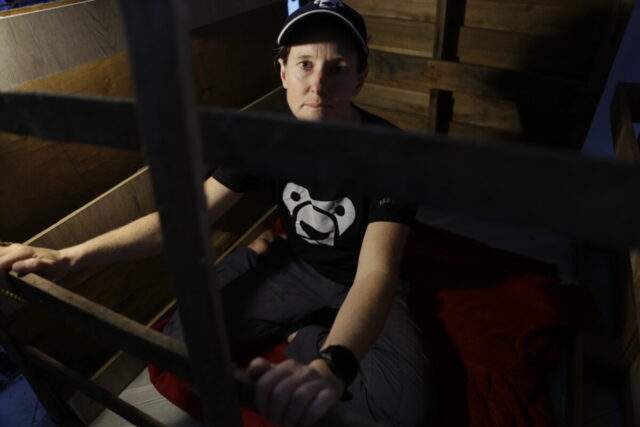Local ultramarathon athlete Sacha Dowell has taken on a challenge of a different kind.
On Saturday she spent the night cramped inside a cage as part of a campaign to raise funds for 16 moon bear cubs rescued from a horrific fate, by Perth-based animal charity Free The Bears.
“It was uncomfortable and really eye-opening,” Sacha said.
“I couldn’t stretch out and woke up with a sore back. But it was only one night – some of the bears we rescue have spent 18 years plus inside a tiny cage.”
It is estimated that more than 10,000 moon bears are cruelly caged and regularly milked for their bile across Asia.
Bear bile has been extracted and used in traditional Chinese medicine for thousands of years and is widely (and spuriously) prescribed to treat everything from hangovers to COVID-19.
Modern research has found that its key component – ursodeoxycholic acid – is effective against liver and gall bladder disorders. But a synthetic, and cruelty-free compound has been available for over a decade.
The battery bears never leave the confinement of their tiny cages.
Some have catheters permanently attached so their bile can be drip-drained. Others are repeatedly poked and probed with syringes and tubes to access the ‘liquid gold’. Some enslaved bears can be exploited like this for up to 30 years, if they don’t perish from infection sooner.
In the countries in which Free the Bears has sanctuaries – Vietnam, Cambodia and Laos – laws have been enacted which prohibit taking bears from the wild or extracting bile.
South Korea banned bear farming in 1992. And the capture of wild bears is forbidden in China, although regulated bear farming is still legal.
They are also protected from international trade under the CITES convention, with Asiatic black bears (moon bears) listed as “vulnerable” on the World Conservation Union’s Red List of Threatened Animals.
But persistent demand for wild bear bile ensures the illegal practise remains rife.
Which is why when 16 live bear cubs were found and confiscated by the environmental police in the Laos capital on March 19 and taken in by Free The Bears at their Luang Prabang Wildlife Sanctuary, it was a moment of bittersweet celebration.

Sadly, when rescuers arrived, one bear cub had already died. But the March operation remains the single largest bear rescue ever recorded.
“This rescue is very emotional for me,” Free The Bears founder Dr Mary Hutton said.
“The cubs would most likely have seen their mothers killed. If they had not been rescued, they would have been assured a horrible fate”.
The pressure is now on to secure funding to care for the cubs.

“We’re still trying to digest how to cope with this massive rescue,” Free the Bears CEO Matt Hunt said.
“The sheer number of cubs puts immense pressure on our small charity. We’ll need to bring in expert cub carers from our Cambodia sanctuary as well as other specialist help from overseas. We hope to receive support from animal lovers worldwide, who can sign up to be a Bear Carer on our website.
Without suitable and protected forest for release, we may need to care for them for life, up to 35 years or more.”
The cubs are currently only a few months old and are receiving bottle feeds round the clock. It is estimated that annual costs to care for the 16 cubs will come to around $50,000.

Which is why Haynes local Sacha Dowell slept in a makeshift cage at the weekend.
Almost 100 people over six countries took part in this year’s Night in a Cage, which was the fifth time the event has been held. Around a dozen Perth animal lovers were among those who participated.
So far, over $60,000 has been donated to the fundraiser – a massive increase on last year’s total, and a surprise given the tight financial circumstances many people currently find themselves in.
“It’s so rewarding to see how much support is there for the bears,” Sacha said.
“Our supporters have seen us rescue these cubs and they want to help us look after them.
“The funds we raise will also go towards rescuing more bears, because, sadly, there are so many more out there needing rescue.”
While her world is far removed from ‘the frontline’, Sacha said she’s proud of the role she’s played as fundraising coordinator.
“I’m happy to be a part of this, and I hope my involvement can make a difference,” she said.
Donations can be made on the Free The Bears website or the Night In A Cage fundraising page.















